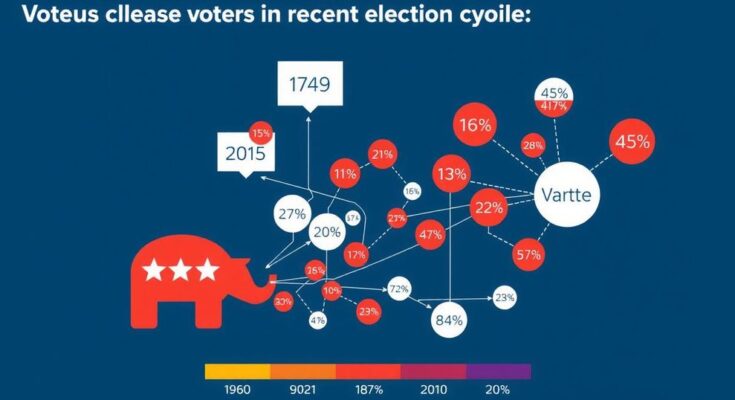The ‘super year’ of elections has marked significant losses for incumbents worldwide as voters express dissatisfaction driven by economic issues and the legacy of the COVID-19 pandemic. Elections in around 70 countries have signified a strong anti-incumbent sentiment, challenging long-standing political parties and revealing a profound voter desire for change.
The year dubbed the ‘super year’ for elections has proven disastrous for incumbents globally, as voters express their dissatisfaction, punishing ruling parties regardless of their longevity in power. The election results signify a significant shift, as evidenced by Donald Trump’s recent return, among notable changes in various nations where nearly 70 countries sought new leadership amidst economic hardships and frustrations with political elites. Economic concerns post-COVID-19 and increasing migration have largely fueled this wave of discontent, leading to the ousting of incumbents in numerous settings, highlighting a deep-seated inclination among voters to challenge the status quo. Data indicates a striking trend: since the pandemic began in 2020, incumbents have faced removal in 40 out of 54 elections across Western democracies. Voter discontent is largely attributable to economic issues, prompting significant defeats, such as the UK’s Conservative Party suffering its worst electoral loss since 1832. Further, the electorate’s discontent is evident in established democracies like France and Germany, where far-right parties have made substantial inroads, leading to complex legislative dynamics. In Asia, long-standing incumbents faced criticism, particularly due to governance issues, further emphasizing the unpredictable landscape of this electoral cycle. The ramifications of voters turning against incumbents extend beyond immediate electoral outcomes. As prominent political scientist Steven Levitsky notes, this trend reveals a significant ‘incumbent disadvantage’ globally, indicating a possible paradigm shift in political accountability. The general sense of frustration regarding economic conditions and perceived disconnection from political elites plays a fundamental role in shaping electoral outcomes. As countries grapple with recovery from the pandemic, it is apparent that voters are increasingly willing to hold their leaders accountable, signaling a profound change in political dynamics.
The context of this article revolves around the unprecedented electoral upheaval observed in numerous nations during a pivotal year, often referred to as the ‘super year’ of elections. This period witnessed staggering transformations in political landscapes globally, where incumbent parties across various ideologies faced severe backlash from disgruntled voters. Various factors, primarily driven by economic distress, the aftermath of the COVID-19 pandemic, and growing public dissatisfaction with governance, have contributed to the widespread removal of sitting governments, revealing a significant shift in voter sentiment.
In summary, the current global electoral landscape indicates an overwhelming trend of voter discontent directed at incumbents, primarily fueled by economic challenges and perceived disconnect from political representatives. The ramifications of this electoral season suggest a significant challenge for established political parties and a redefined relationship between voters and their governments. As this electoral wave concludes, it posits essential considerations for future governance strategies as parties grapple with the evolving expectations of their constituents.
Original Source: apnews.com




